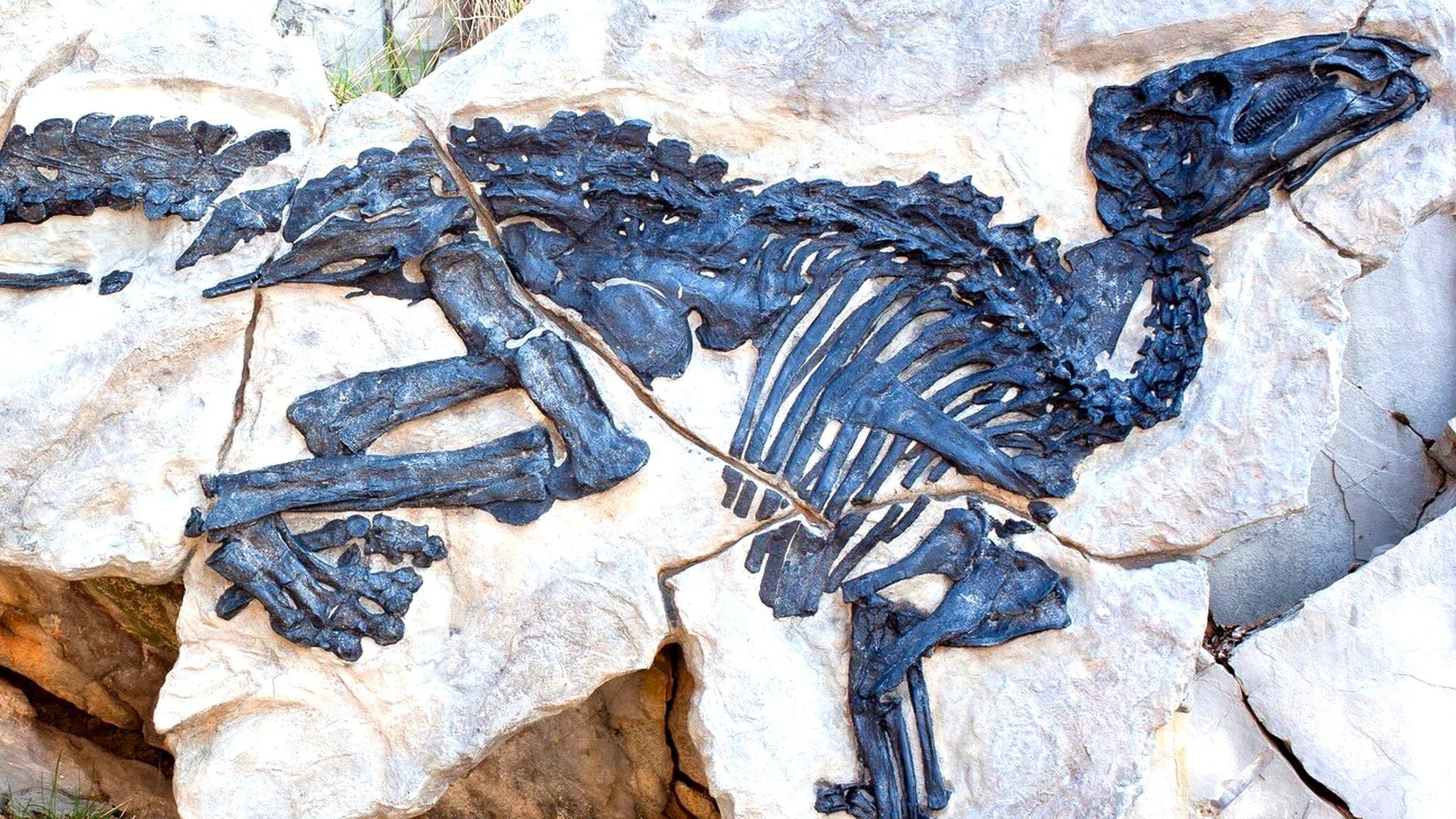Spinosaurus: Largest carnivorous dinosaur hunted underwater
- Published
- comments
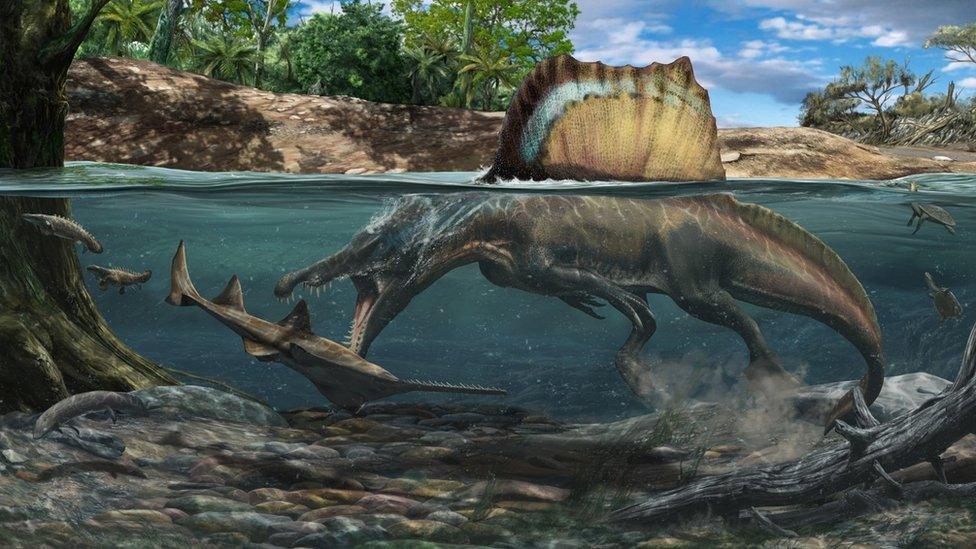
Artists's impression of how the Spinosaurus might have looked when it was hunting
Scientists believe they have solved the mystery of how the world's largest carnivorous (meat-eating) dinosaur was able to hunt.
For years, experts have been trying to find out whether the Spinosaurus waded into rivers and lakes like a heron or if they swam underwater like a crocodile or a hippo.
They now believe that the dinosaur had heavy bones that would likely have allowed it to swim and hunt underwater.
The Spinosaurus - which means 'spine lizard' in Greek - is believed to have lived 95 million years ago in North Africa, during the Cretaceous period.
What did experts find?
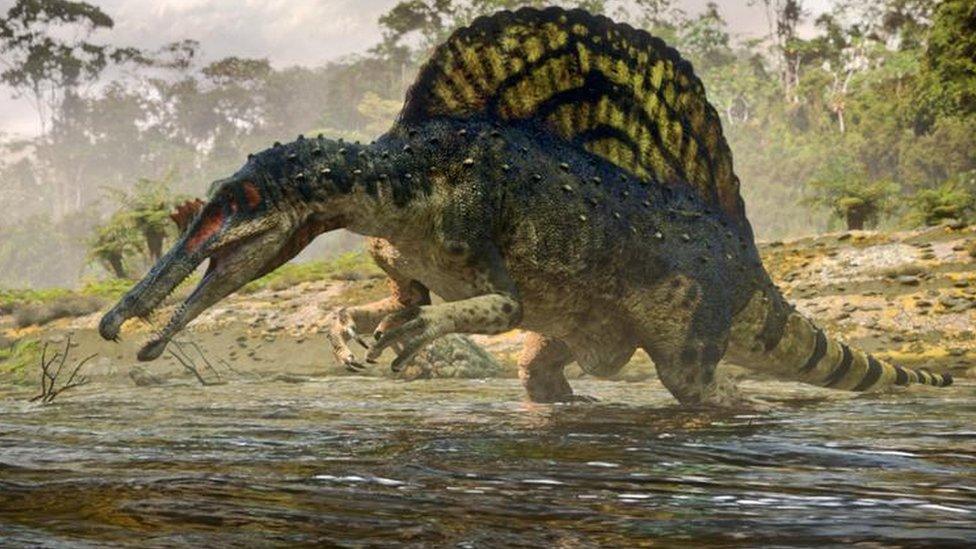
Experts believe the Spinosaurus had dense bones that allowed it to go underwater to hunt
Researchers at the Field Museum in Chicago in America studied Spinosaurus bones and compared them with the bones of 250 species of extinct and living animals including other species of dinosaur as well as animals such as whales, elephants and alligators.
They found that the Spinosaurus had very dense - or thick - bones compared to other animals and scientists say they were able to find a clear link that showed that the animals with thicker bones were more likely to hunt underwater.
The Spinosaurus had a massive bony fin on its back. This was also known as a sail, and could be over two metres high!
The animals that went underwater to find food had bones that were almost completely solid throughout, while the bones of land animals had hollow centres.
It's thought that having thicker bones could helps animals control their movements in water better.
Experts say that the Spinosaurus was unlike any other dinosaur in their structure - with short back legs, a paddle-like tail and bony spines on its back.
Matteo Fabbri from the Field Museum said, "I think this animal is simply weird: we have nothing alive today that could be considered remotely similar."
Could you be a dinosaur detective? Take our quiz below and find out!
If you cannot see the quiz, click here.
- Published15 February 2022
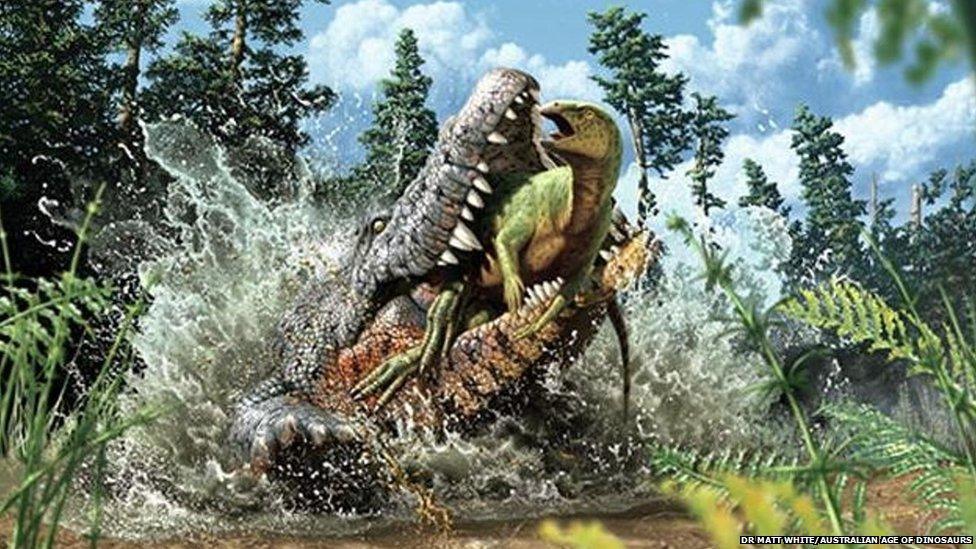
- Published6 March 2022
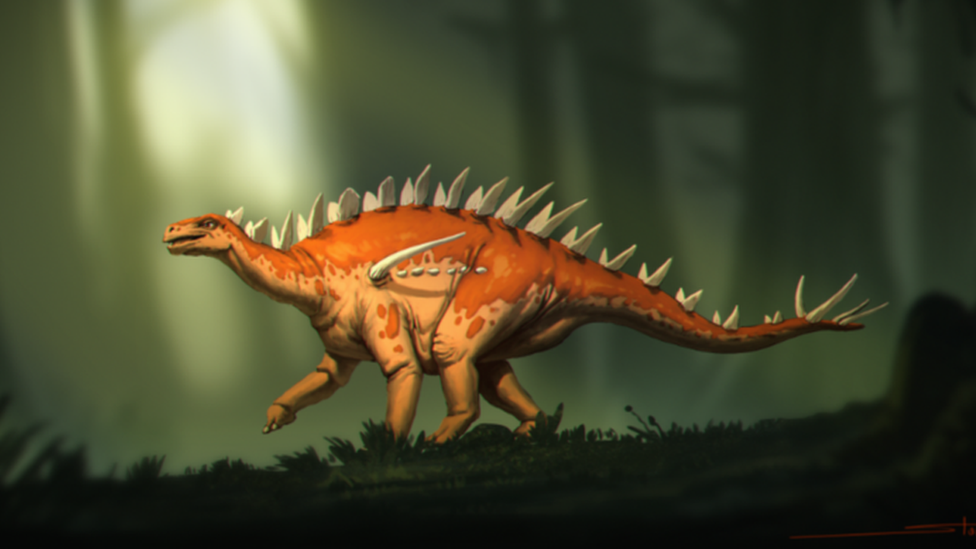
- Published3 December 2021
